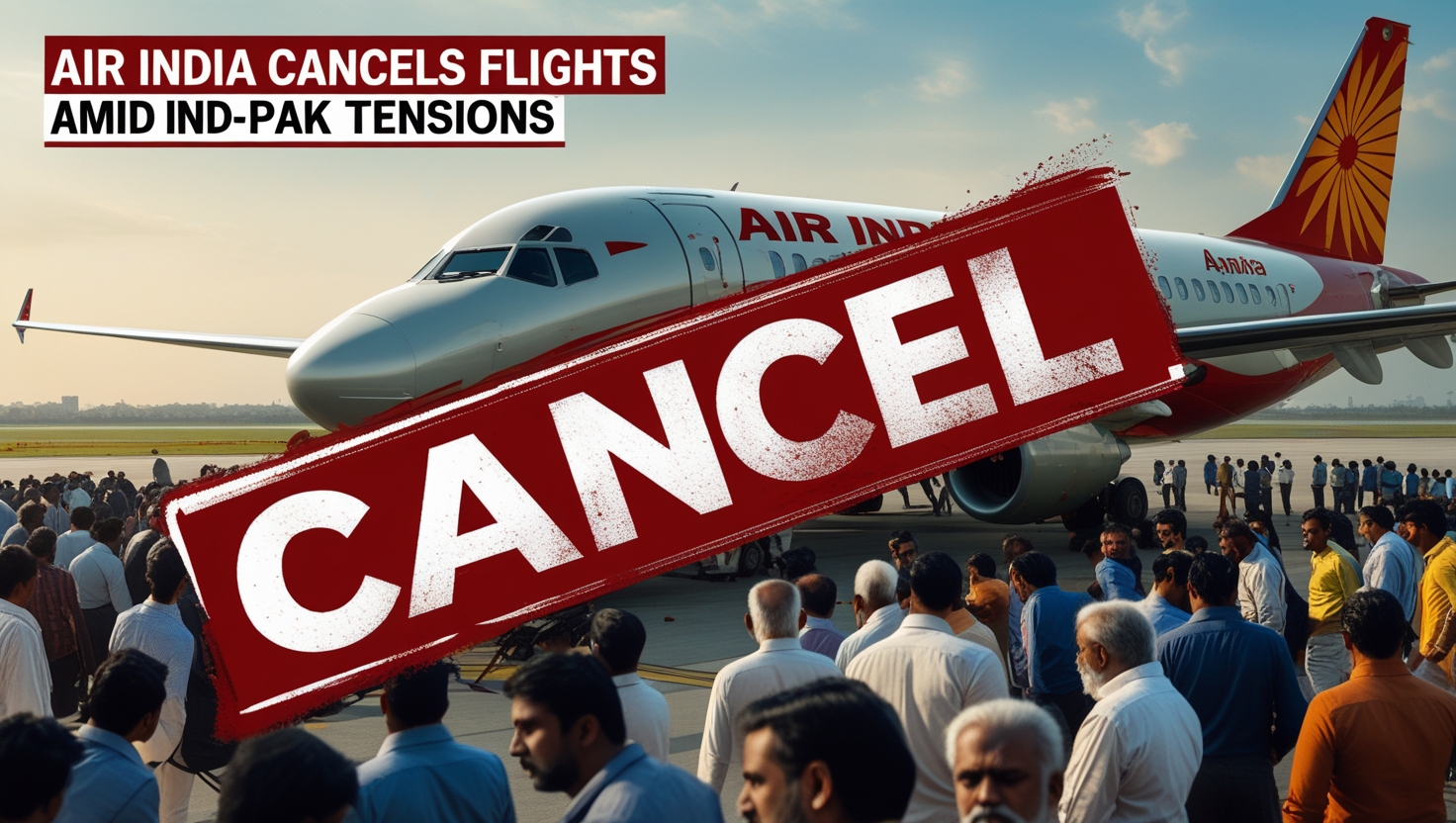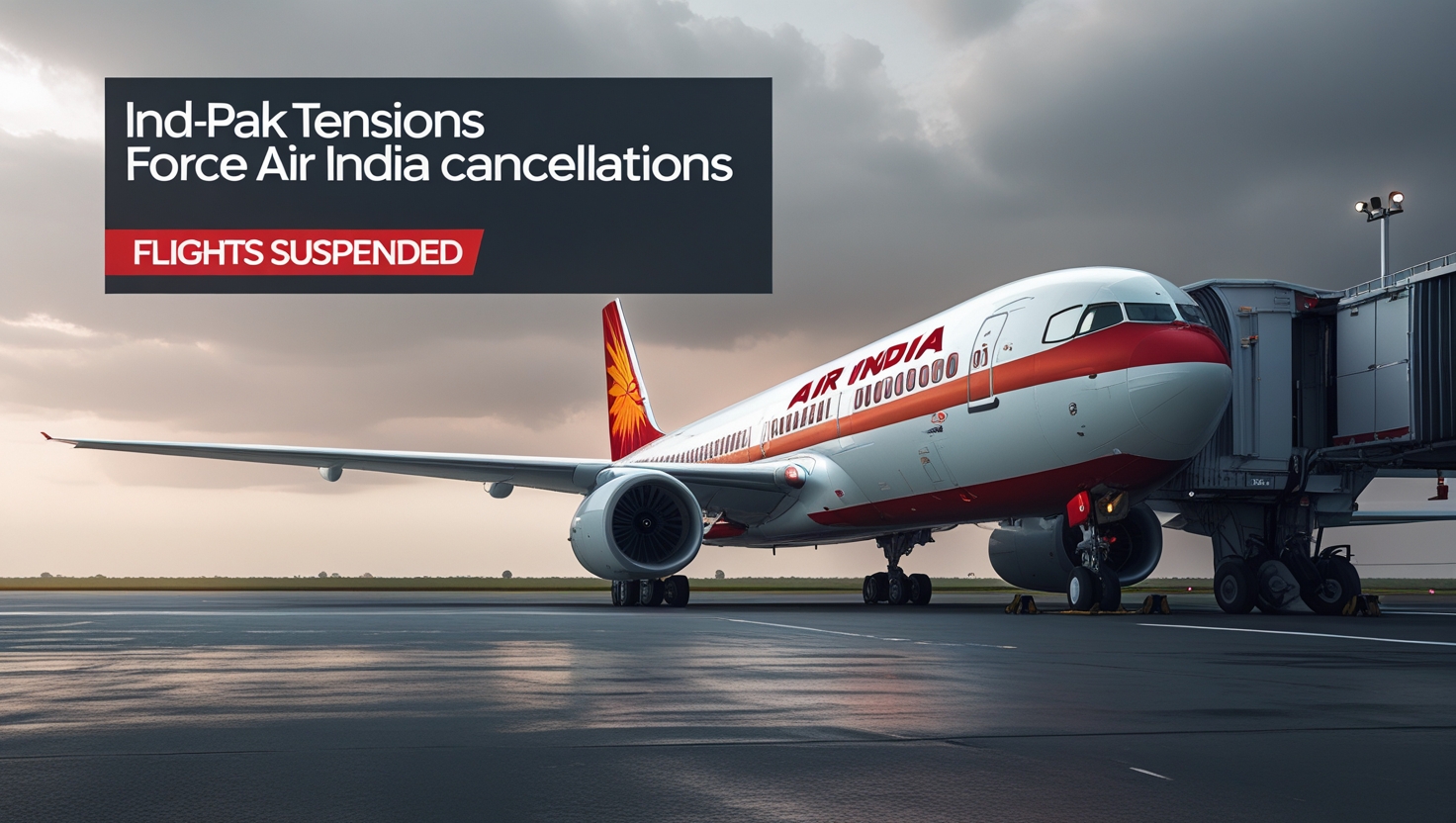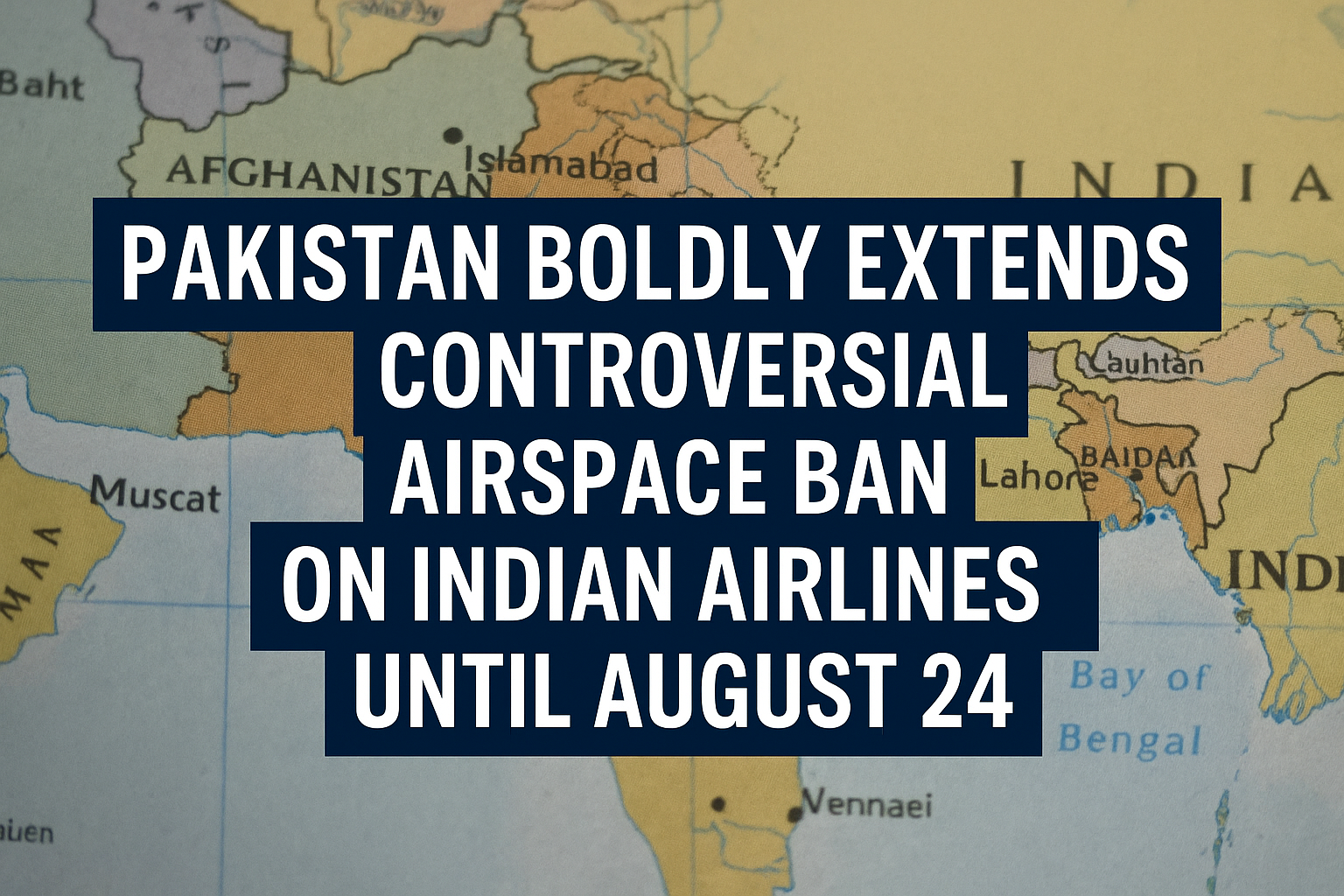Pakistan Boldly Extends Airspace Ban on Indian Airlines Until August 24 — Strategic Tensions Soar Again

In a move that reignites long-standing regional tensions, Pakistan boldly extends its airspace ban on Indian airlines, intensifying the diplomatic standoff and logistical challenges for carriers operating between the two nuclear-armed neighbors. The extension, now in effect until August 24, signals Islamabad’s firm stance in response to recent political developments in the region. The airspace ban has already led to a rerouting of major commercial flights and economic repercussions for Indian airlines, especially those catering to Gulf and European routes.
Since the initial imposition, the Pakistan boldly extends directive has impacted the aviation sector on both sides, causing delays, financial strain, and renewed international concern. With geopolitical relationships already fragile, this extension adds a new layer of complexity.
Regional Implications of Pakistan Boldly Extends Decision
The latest announcement that Pakistan boldly extends the airspace restrictions is seen by many as a calculated political maneuver. It comes at a time when bilateral dialogue between New Delhi and Islamabad is largely stalled. The aviation industry, particularly Indian airlines such as Air India and IndiGo, have had to reroute several international flights, adding considerable time, fuel cost, and crew adjustments.
Notably, this isn’t the first time that Pakistan has imposed such a ban. Historically, such decisions have coincided with heightened border skirmishes, political unrest, or major diplomatic incidents. This time, however, the Pakistan boldly extends measure appears to be influenced by both domestic pressures and external diplomatic calculations.
Aviation experts estimate that the extra fuel costs alone may amount to millions of dollars. Flights bound for the Middle East or Europe are forced to make detours through southern corridors, increasing average flight times by over 90 minutes in some cases. For an industry already grappling with post-pandemic recovery, the Pakistan boldly extends policy is a blow.
International Reactions as Pakistan Boldly Extends Restriction
The international community has been closely watching as Pakistan boldly extends this restriction, fearing that further escalation could destabilize the broader South Asian region. While no formal statements have been made by the United Nations or major global powers, informal diplomatic channels are reportedly active behind the scenes.
Global aviation authorities like IATA and ICAO have taken note of the ongoing closure. Although such decisions are within a country’s sovereign rights, the prolonged nature of the ban raises eyebrows in international aviation circles. The Pakistan boldly extends situation has also been a topic of discussion in airline association meetings, as operators seek clarity and risk mitigation.
Indian diplomats have labeled the move as an “unconstructive” step at a time when regional cooperation is essential. The sentiment in India’s aviation sector echoes similar frustration. Many insiders believe that unless resolved diplomatically, this Pakistan boldly extends phase could create long-term disruptions to regional connectivity.
Domestic Sentiment in Pakistan as Pakistan Boldly Extends Ban
On the home front, the extension has stirred debate within Pakistan’s media and political corridors. Some nationalist factions view the Pakistan boldly extends decision as a sign of strength and national pride. Government spokespeople have reiterated that the move was necessary to safeguard sovereignty and send a firm message to India.
However, not all voices in Pakistan are in favor. Aviation analysts and opposition figures argue that the Pakistan boldly extends policy may backfire economically. The ban also affects overflight fees and bilateral aviation cooperation agreements that have benefited Pakistan financially. Critics warn that the nation could lose valuable aviation revenue and global goodwill if the situation persists.
This divergence in opinion reveals a country divided over the balance between diplomacy and domestic political gain. It underscores how deeply embedded the issue is in national identity and geopolitics.
A Closer Look: How Pakistan Boldly Extends Strategy Impacts Airlines
Indian airlines, the immediate victims of the Pakistan boldly extends directive, are facing logistical nightmares. Each rerouted flight not only increases costs but also affects scheduling, crew rest times, and slot availability at major international airports.
Air India has confirmed that routes to London, Toronto, and Dubai are now rerouted via alternate paths that avoid Pakistani airspace altogether. This has stretched operations, led to cancellations, and prompted ticket price surges.
Private carriers like Vistara and SpiceJet are not immune either. The Pakistan boldly extends scenario has caused them to realign entire route maps for the summer season. Passenger complaints over delays and last-minute changes have surged, adding to public dissatisfaction.
For passengers, the inconvenience is palpable. Layovers are longer, ticket prices have increased, and inflight services are impacted due to the extended durations.
Pakistan Boldly Extends Policy and Historical Context
Historically, airspace bans have served as tools of geopolitical pressure. From the 1971 India-Pakistan war to the post-Balakot 2019 scenario, airspace restrictions have mirrored rising tensions.
In 2019, Pakistan closed its airspace for over five months following Indian airstrikes in Balakot. That period resulted in massive disruptions, forcing nearly every airline flying over the subcontinent to adjust routes. Similarly, the Pakistan boldly extends action this year has revived those memories.
Analysts argue that recurring closures damage Pakistan’s aviation brand. With modern global carriers relying on seamless overflight rights, such moves isolate nations from international cooperation. The longer the Pakistan boldly extends approach continues, the greater the reputational cost.
Aviation Industry’s Strategic Response as Pakistan Boldly Extends Ban

The aviation industry is responding with caution but increasing assertiveness. While Indian airlines absorb the immediate cost, some have begun lobbying for reciprocal measures. If the Pakistan boldly extends ban remains in place, there’s speculation that Indian authorities might consider similar restrictions.
Additionally, tech-based navigation tools and air traffic rerouting systems are being upgraded to handle the new norms. Several Indian carriers are now in talks with air traffic controllers in Iran, Oman, and other regional players to secure efficient alternate routes.
The Indian Directorate General of Civil Aviation (DGCA) has also initiated consultations with airlines to create contingency plans. The idea is to reduce dependency on Pakistani airspace even post-ban.
Diplomatic Crossroads as Pakistan Boldly Extends Airspace Ban
The diplomatic implications of Pakistan boldly extends are immense. In a region where peace has often been elusive, such unilateral decisions add layers of mistrust. India’s Ministry of External Affairs has maintained that open skies should be the norm, especially for civilian travel.
Yet, Pakistan seems undeterred. The decision to extend the airspace ban till August 24 may be seen as a signal to both internal and external audiences that the country is not backing down from its geopolitical stance.
Observers believe this could be part of a broader negotiation tactic ahead of upcoming summits or UN General Assembly discussions. By leveraging aviation, Pakistan may be attempting to draw attention to its strategic concerns, especially over Kashmir and regional defense policies.
What’s Next? Pakistan Boldly Extends Into the Unknown
As of now, there is no indication that the ban will be lifted before August 24. Even then, the future remains uncertain. The aviation sector must prepare for a prolonged period of unpredictability.
If Pakistan boldly extends this restriction again, it could trigger a domino effect, where other countries reassess overflight agreements. It may even push India to accelerate development of more robust regional aviation partnerships that exclude Pakistan.
Ultimately, the decision to keep the airspace closed reflects a confluence of national security, political ideology, and regional strategy. Until diplomatic channels resume in earnest, the policy of Pakistan boldly extends will continue to dominate headlines—and the skies.
Growing Economic Strain as Pakistan Boldly Extends Tensions
The economic fallout of the Pakistan boldly extends decision is becoming increasingly visible. Indian carriers are bearing the brunt, with reports indicating that average operational costs have gone up by 12% since the initial closure. Aviation fuel prices and route management expenses have escalated, forcing some airlines to reconsider expanding their fleets or routes in the short term.
Pakistan too is not immune to the economic ramifications. Loss of overflight fees—an important revenue stream—has put additional stress on the country’s already tight fiscal situation. With the tourism sector also under pressure, the extended ban adds another blow to economic optimism.
Financial analysts suggest that if Pakistan boldly extends beyond August 24, Pakistan might find it increasingly difficult to justify the policy without offering clear diplomatic wins. This places additional pressure on its foreign ministry and security establishment.
Media Narratives and Political Spin Around Pakistan Boldly Extends Strategy
The media landscape in both nations has responded strongly to the Pakistan boldly extends announcement. Indian outlets have focused on the disruption to passengers and costs to airlines, calling the move politically motivated and regressive. Pakistani media, particularly state-owned channels, have portrayed the extension as a necessary security measure.
International coverage has been more measured but notes the growing instability in South Asia. Analysts from global think tanks have warned that the Pakistan boldly extends action reflects the larger pattern of nationalist foreign policy moves in the region.
Social media too is abuzz with commentary. Hashtags like #AirspaceBan and #PakistanBoldlyExtends have trended across platforms like X (formerly Twitter), reflecting the divided opinions of users from both countries.
Conclusion: Pakistan Boldly Extends a Tense Chapter
The extension of Pakistan’s airspace ban on Indian airlines is more than a logistical obstacle—it’s a symbolic gesture of geopolitical rivalry. As Pakistan boldly extends this restriction, the future of South Asian aviation, diplomacy, and economic cooperation hangs in a delicate balance.
Whether this move leads to renewed dialogue or deeper estrangement remains to be seen. What’s clear, however, is that the skies between India and Pakistan remain as politically charged as ever. With August 24 looming, all eyes are now fixed on what comes next—and whether Pakistan boldly extends yet again.

